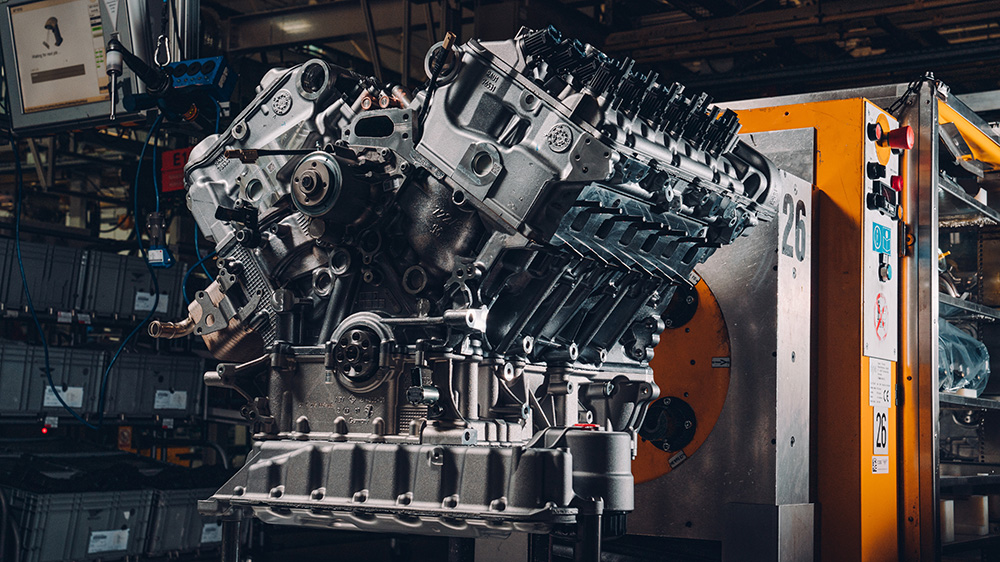
Bentley is finally ready to say goodbye to the W-12 engine.
The British automaker announced on Wednesday that the limited-run 2024 Batur will act as a farewell to its flagship mill. That doesn’t mean the brand is giving up on internal combustion engines just yet, though. The company will continue to produce a V-8 and hybrid-assisted V-6 for the time being.
Bentley’s 12-cylinder engine may not be as famous as rival Rolls-Royce’s, but it has still been around for more than 20 years now. The 6.0-liter mill launched in 2003, a half-decade after the marque became part of the Volkswagen Group. It is constructed from two VR6 engines placed side by side, making it more compact than a standard V-12. The engine has been featured in a number of Bentleys since its introduction, including the Flying Spur, Continental GT and Bentayga SUV.

Fittingly, the final W-12 will also be the most powerful. Bentley says the “ultimate iteration” of the mill will produce 740 hp and 737 ft lbs of torque, both of which are increases over what was promised last year. Only 18 Batur coupés will be built, each of which is already spoken for, but the automaker says there are still a few order slots left for other models with W-12s. Production of the engine will end in April 2024.
“Our progressive journey towards sustainable luxury mobility means making changes to every area of Bentley Motors,” CEO Adrian Hallmark said in a statement. “When we first launched the W-12 back in 2003, we knew we had a mighty engine that would propel both our cars and the brand forwards at speed. 20 years and more than 100,000 W12s later, the time has come to retire this now-iconic powertrain as we take strides towards electrification—but not without giving it the best send-off possible, with the most powerful version of the engine ever created.”
As Hallmark’s comments make clear, the end of the W-12 marks the beginning of a new era. The marque will continue to build cars with combustion engines in the immediate future, but plans to unveil its first EV in 2026. That same year it will cease production of purely gas-powered models before going fully electric by the end of the decade.

